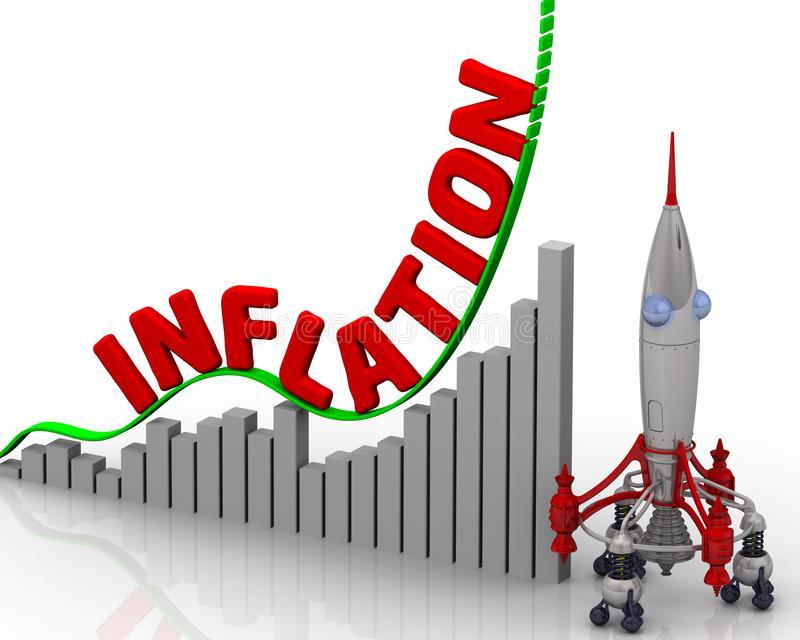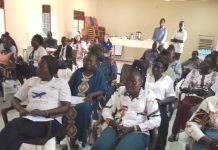Africa-Press – South-Sudan. South Sudan has continued to face unprecedented inflation in basic commodity prices at a time when close to 8 million of the country’s estimated 13 million people are said to be facing the worst impending starvation since 2013.
Despite being endowed with abundant fertile agricultural land, water, and minerals, the country relies entirely on imported goods for survival, including food and fuel.
At the release of the Integrated Food Security Phase Classification (IPC) report on Saturday, the Minister of Agriculture and Food Security, Josephine Lagu, said the majority of the citizens can hardly afford one decent meal for their family members, and mothers and children pay the ultimate price.
While the factors propagating the situation have been equated to flooding, subnational violence, and displacements, some factors have not been identified and taken seriously by the concerned authorities; traders have taken advantage of the situation to exploit local consumers.
Chamber
of Commerce
Last week, the Chairperson of the Central Equatoria State Chamber of Commerce, Robert Pitia Francis, accused traders of collusion to hike prices of imported goods.
Mr. Pitia said that although traders were incurring multiple taxes, the levies did not warrant cheating local consumers. He revealed that some wholesalers–mostly foreigners–have resorted to repackaging expired commodities to reduce the actual weight of commodities sold to retailers.
“It is wrong and we cannot accept cheating on our citizens. What we want is for this thing to stop, so that traders should not take advantage of our local consumers because they are ignorant of their rights, “Mr. Pitia said.
Traders say
A trader who preferred to be identified by only one name, Andes said: “The checkpoints are many on the road here. Every checkpoint demands payment of money. With this extortion, we are now powerless to continue with our businesses. “
EAC
bloc blamed
Though South Sudan is a member of the East African Community, traders said the bloc has not fully implemented the customs union protocol, allowing the neighbouring member states to impose multiple taxes on them.
The Acting Chairperson of the National Chamber of Commerce, Industry and Agriculture, Ladu Lukak questioned the benefit of the EAC to South Sudanese traders, pointing out that some have been finding it hard to trade with the region.
“So, if East African Community member states have a unity that we should work together, those things should be abolished so that goods become cheaper in South Sudan,” said Mr. Lukak.
The City Review could not easily access the Ministry of Trade and the Bureau of Standards’ comments on the challenges facing traders, and affecting local citizens.
However, an activist has warned of the devastating hunger crisis in the country, calling on the government and humanitarian actors to address the situation.
“If it doesn’t respond, then we are going to see food insecurity leading to an increase in incidents of crimes, like road robberies, communal violence, or attacks on humanitarian workers, because people need food because they are facing food insecurity.”
“The leadership of the country that is concerned with these issues should step up and should call for a national food insecurity dialogue,” said Edmund Yakani, CEPO Executive Director.
The country’s situation
“The cumulative and compounding effects of years of climate-related shocks such as flooding and drought, conflict and subnational violence have destroyed people’s homes and livelihoods, robbing them of the future they deserve,” said Sara Beysolow Nyanti, UN Humanitarian Coordinator for South Sudan.
But last month, the UN Office for the Coordination of Humanitarian Affairs (OCHA) said 1.7 billion was needed to avert the plight of the millions whose lives were at stake due to a hunger crisis, exacerbated by flooding, violence, and poor road infrastructure.
The country imports almost everything, including food, from neighbouring countries like Uganda, Kenya, and Sudan in the north, despite being endowed with fertile arable land and abandoned water resources, favourable to agricultural practices.
According to the 2020/2023 Humanitarian Response Plan (HRP), $1.7 billion will be needed to respond to the needs of the 6,8 million people facing risk, with an estimated 7,74 million expected to face one of the waste hunger crises this year, according to IPC 2022 IPC analysis.
For More News And Analysis About South-Sudan Follow Africa-Press






